
This year marks the calendar addition of an extra day (a leap day), making it a leap year. The additional day, February 29th to be exact, was introduced to maintain synchronisation between our calendars and the seasons.
By why? I hear you ask. Now for the science bit – our planet, Earth, takes approximately 365.25 days to orbit the sun, therefore every four years that accounts for an extra day, ‘Leap Day’.
So now we understand why there’s an extra day every four years, let us discuss what this has to do with marriage proposals.
Reverse proposals
February 29th isn’t just an extra day – it’s also a date tied to the longstanding age-old Irish tradition of ‘women asking men’ for their hand in marriage. Dating back to the fifth century, Saint Brigid struck a deal with Saint Patrick that every four years women should be allowed to propose to men as it was felt that women were waiting around too long for men to propose. The day is also known as Bachelor’s Day or Ladies’ Privilege.
While women no longer need permission to propose it’s still a tradition that is recognised in the UK and one that is championed as gender roles evolve in modern-day times. A recent survey revealed that 16% of women (in heterosexual marriages) had proposed to their partner.
February 29th offers a great opportunity for women to propose to their partners, with a unique date to mark their engagement, although any time that feels right whether that’s a special or sentimental date will cement a major milestone in any relationship.
A nation of traditionalists
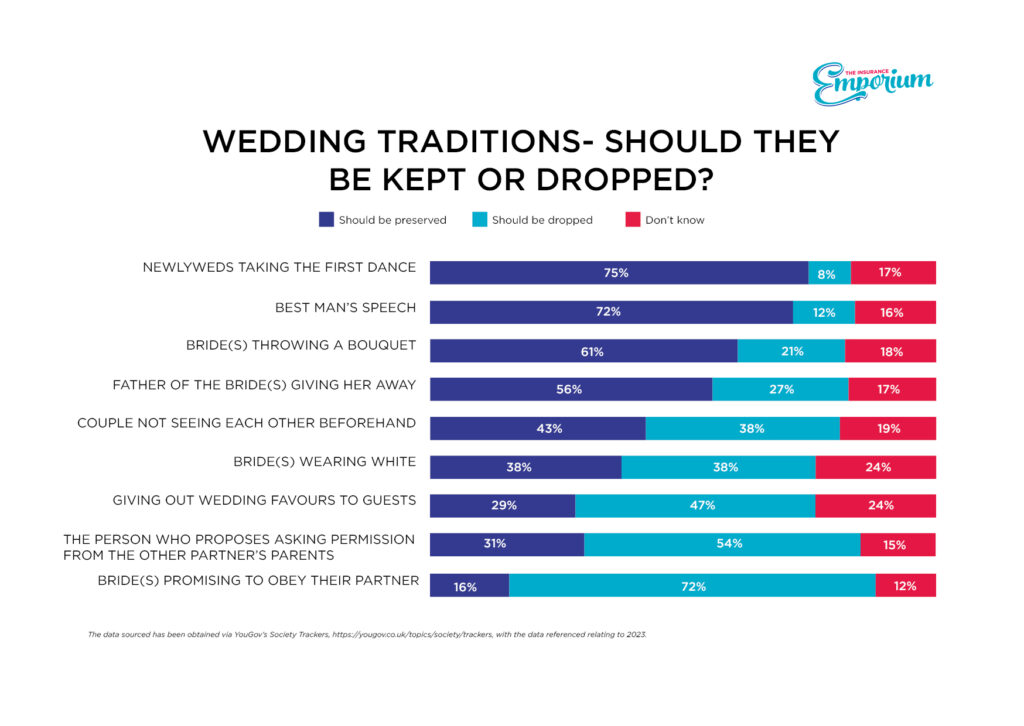
Here at The Insurance Emporium, we’ve been crunching that data from YouGov’s annual trackers who have been polling the great British public on traditions around getting married and weddings, and whether they should be preserved or dropped, with some surprising results.
- 75% of Brits still say ‘I Do’ to having a first dance
- 72% still want a best man’s speech
- 61% think the bride(s) should throw her bouquet
- 56% think the father of the bride(s) giving her away should be kept
- 43% believe a couple should not see each other before the wedding
In contrast, 54% think the tradition of asking permission from the other partner’s parents should be dropped, 47% would drop giving out wedding favours to guests and finally, a whopping 72% say ‘I don’t’ to the bride(s) promising to obey their partner.
Yet, when it comes to the bride(s) wearing white there’s an equal split of 38% as to whether this tradition should be kept or dropped – with Gen Z & Millennials weighted towards it being kept and Gen X & Boomers weighted towards it being dropped.
Although feelings towards wedding traditions are relatively unchanged, attitudes towards getting married before having children have changed drastically in modern times. The average age for a woman to have her first child is 30.9 years, while for a father it’s 33.7 years. When it comes to getting married, the average age for opposite-sex couples is 38.1 years for men and 35.8 years for women.
Gen Z & Millennials
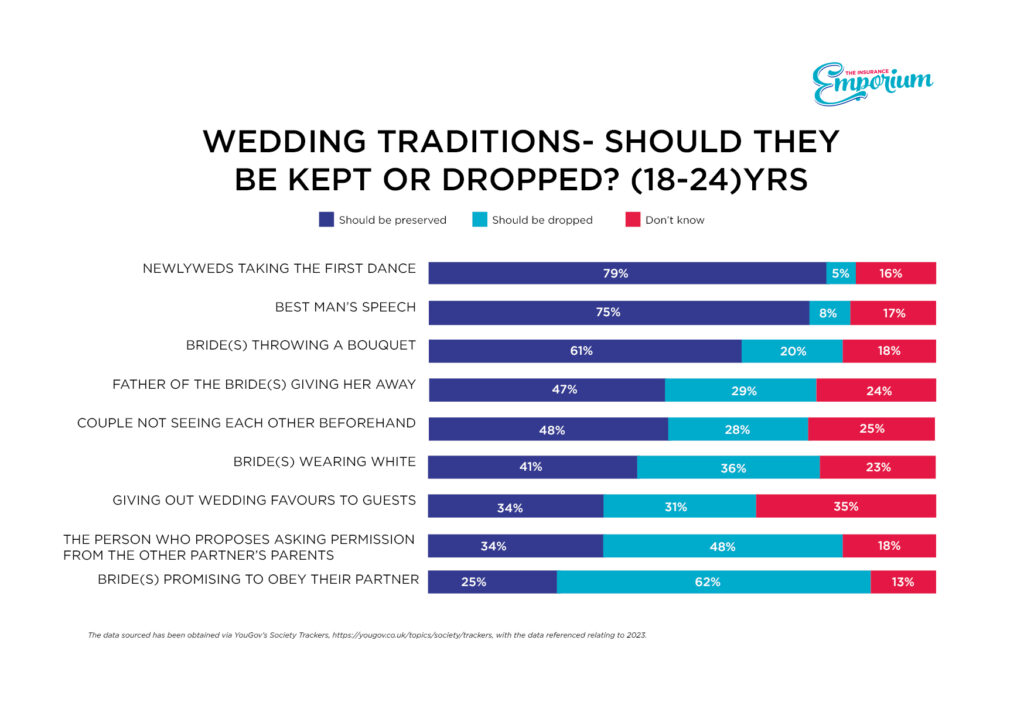
Breaking down the data to age demographics, it appears as though Gen Z and Millennials are more inclined to preserve the majority of wedding traditions rather than drop them. With ‘promising to obey’, ‘asking permission’ and ‘giving out favours’ falling out of favour.
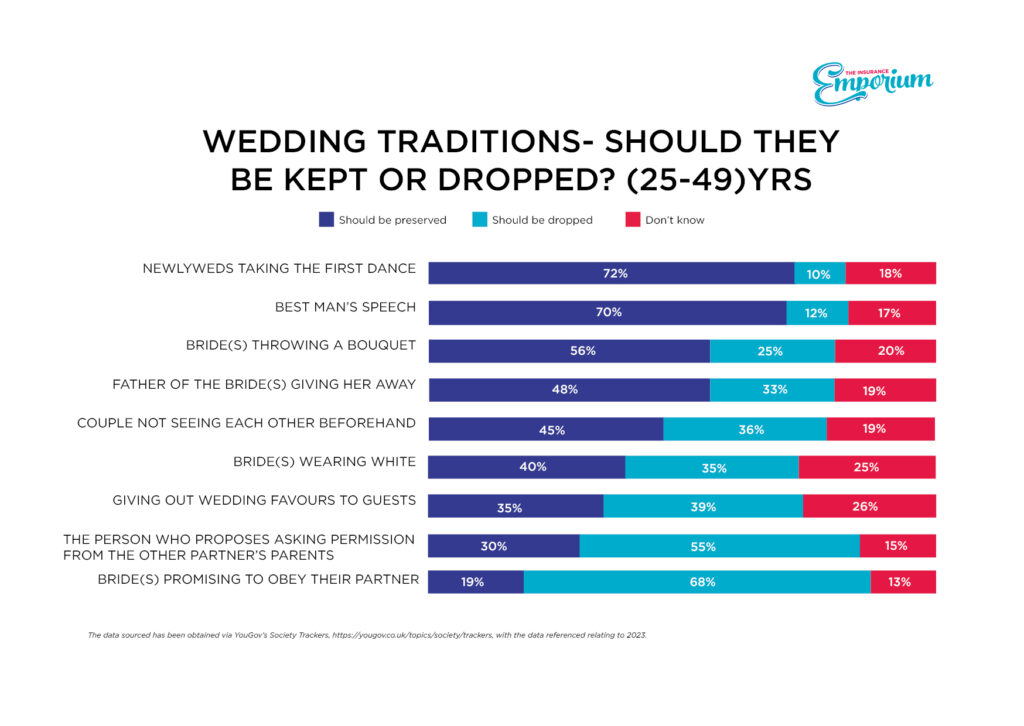
Gen X & Boomers
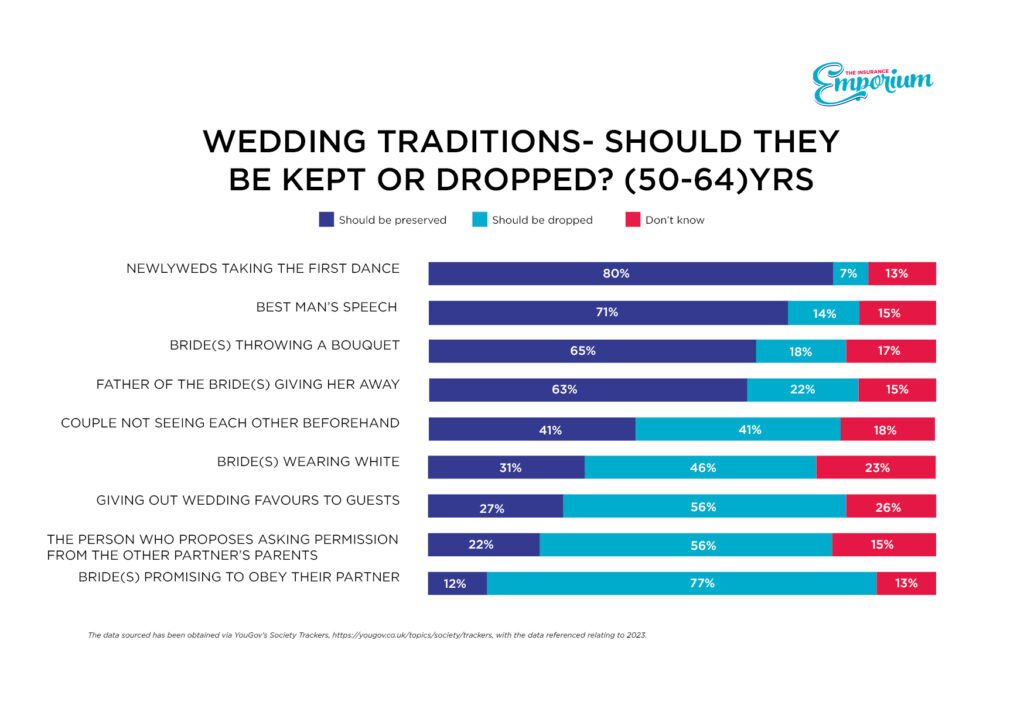
On the other end of the scale, Gen X and Boomers have quite strong feelings towards keeping a couple’s first dance, the best man’s speech, the bride(s) throwing a bouquet and the father of the bride(s) giving her away. While there’s less sentimentality in keeping other traditions, especially ‘bride(s) promising to obey her partner’.
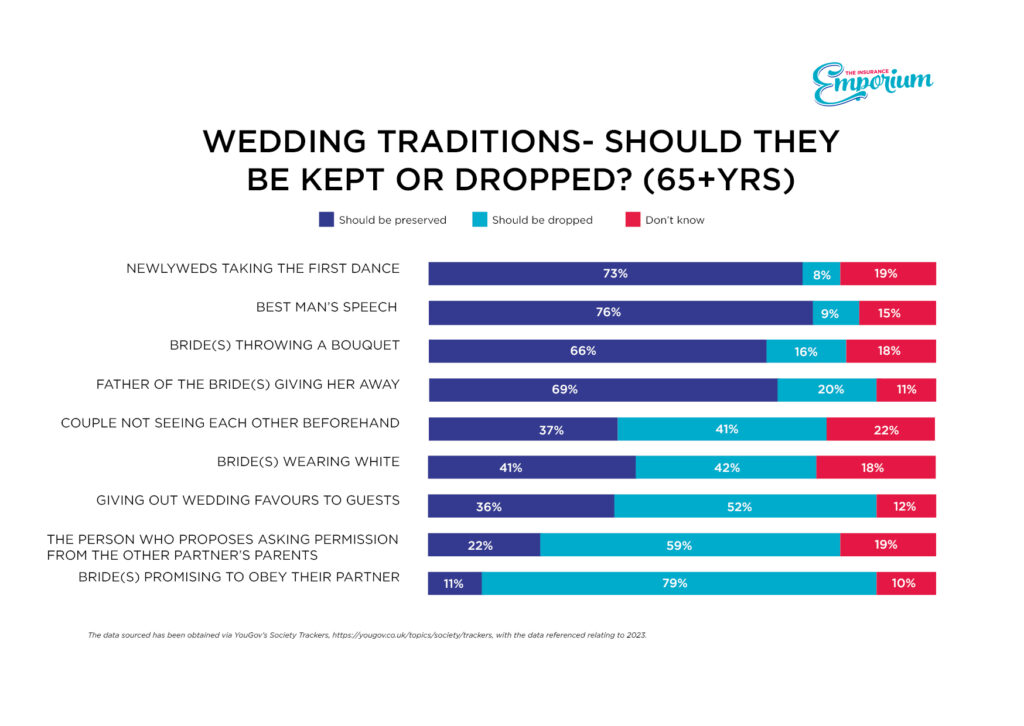

However you propose or have been proposed to, planning a wedding can be an exciting time. Using Pinterest for theme ideas, choosing a photographer/videographer to capture all the special moments during the day, wedding dress shopping and everything else in between. Yet, even planning a wedding with military precision doesn’t mean it’s exempt from things going wrong. With seven policy types to choose from, our UK Wedding Insurance could give you the peace of mind you’re looking for so you can concentrate on enjoying one of the most special days of your lives.
All content provided on this blog is for informational purposes only. We make no representations as to the accuracy or completeness of any information on this site or found by following any link on this site. We will not be liable for any errors or omissions in this information nor for the availability of this information. We will not be liable for any loss, injury, or damage arising from the display or use of this information. This policy is subject to change at any time.
We offer a variety of cover levels, so please check the policy cover suits your needs before purchasing. For your protection, please ensure you read the Insurance Product Information Document (IPID) and policy wording, for information on policy exclusions and limitations.


